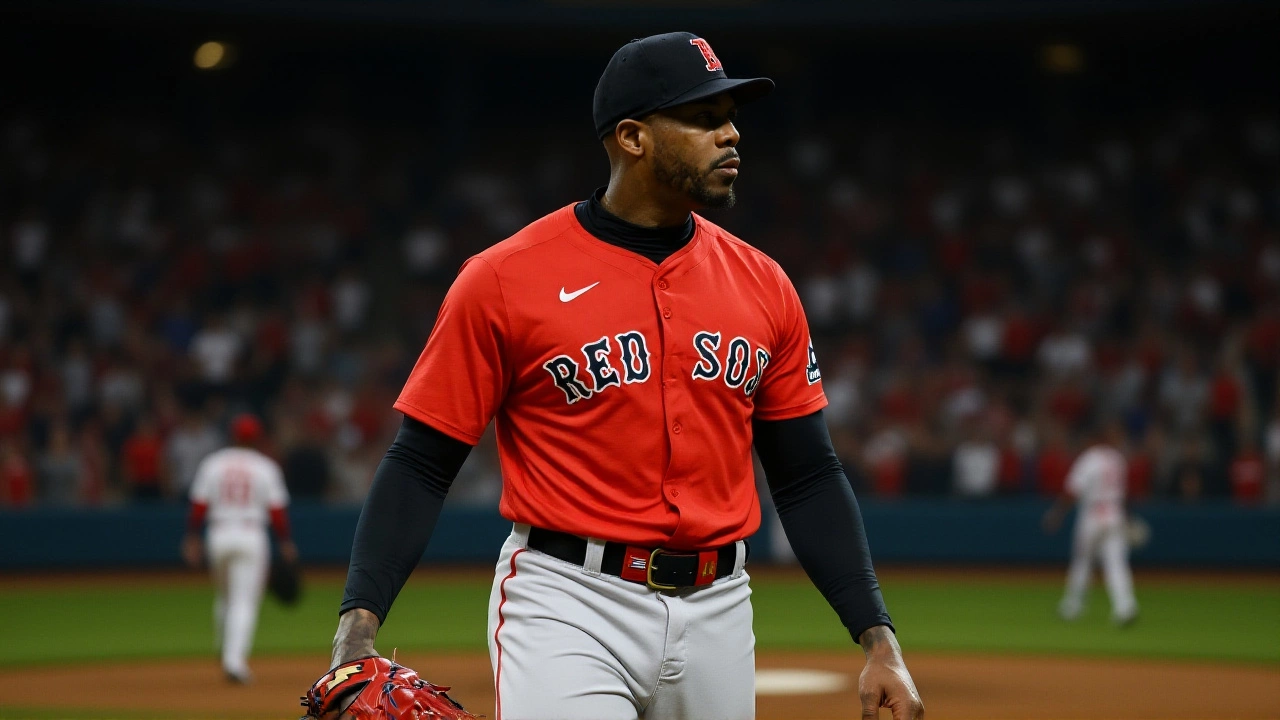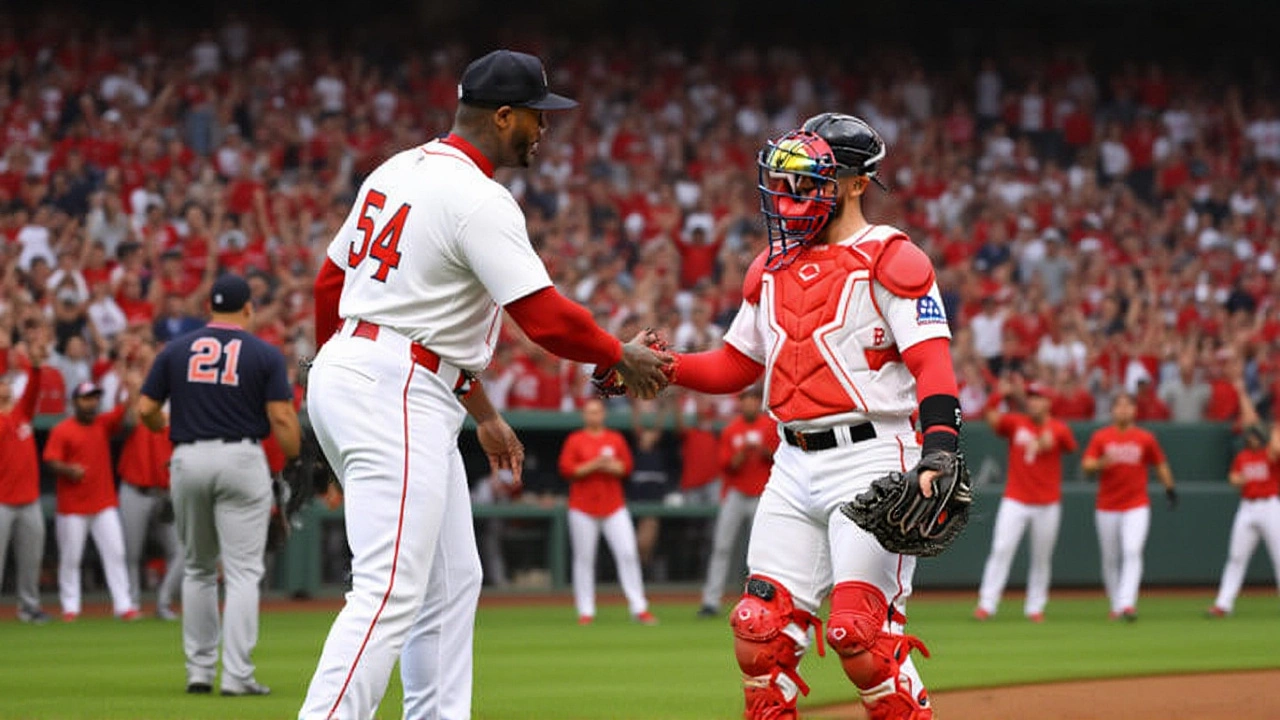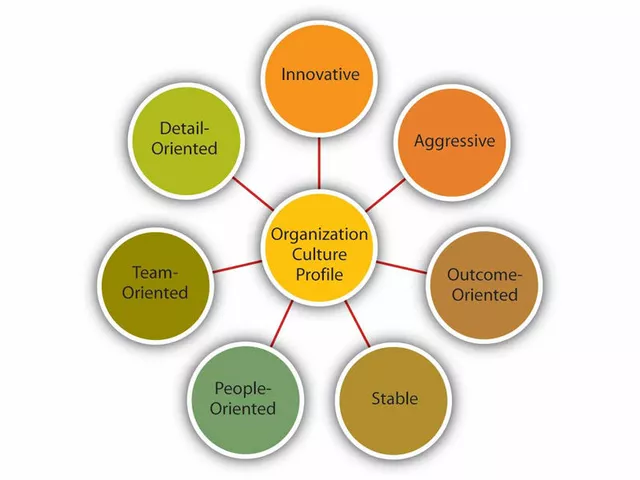When Aroldis Chapman, the 37‑year‑old left‑handed closer for the Boston Red Sox, recorded his 11th career postseason save on September 30, 2025, the atmosphere at Yankee Stadium turned electric. The Red Sox edged the New York Yankees 3‑1 in Game 1 of the AL Wild Card seriesYankee Stadium, putting Boston one step closer to a historic postseason run.
Why Chapman’s performance matters
Chapman entered the ninth inning with the bases empty but a trio of singles — Paul Goldschmidt, Aaron Judge and Cody Bellinger — threatened to shift momentum. The veteran didn’t flinch. After walking the next three hitters, he unleashed a 101.2 mph four‑seam fastball that whipped up to 2,525 rpm, forcing a foul‑tip strikeout against Trent Grisham for the final out.
It wasn’t just the sheer velocity. Over the 2025 regular season Chapman logged a career‑best 1.17 ERA and a microscopic 0.70 WHIP across 61.1 innings, striking out 85 batters while issuing just 15 walks. Those numbers earned him 32 saves and the title of the Red Sox’s primary closer, a role the franchise had struggled to fill since the departure of Kopech in 2023.
Historical context: From Cuba to Fenway
Born in Holguín, Cuba, Chapman burst onto the MLB scene with the Cincinnati Reds in 2010, quickly establishing himself as a triple‑digit cannon. He earned NL All‑Star nods from 2012‑2015 and collected the DHL Delivery Man of the Month awards in 2012. A World Series with the Chicago Cubs in 2016 and another championship with the Texas Rangers in 2023 added to his résumé.
The move to Boston in July 2024 was a gamble; the Red Sox were adding a 37‑year‑old closer with a fastball that still topped 100 mph. Yet his 2025 stats proved the gamble paid off. Chapman also became the first pitcher in modern MLB history to record a sub‑1.00 ERA while logging more than 60 innings as a reliever.
Game‑by‑game breakdown
The Red Sox built a 3‑0 lead on solid offense — a solo homer by J.D. Martinez, a two‑run double from Rafael Devers, and a sac fly by Xander Bogaerts. The Yankees answered with a solo shot by Judge in the fifth, but Boston’s bullpen held firm.
When Chapman entered, the Yankees had already amassed five hits, three walks and two strikes. The first three batters he faced managed single‑plane contact, but they never threatened with power. "I was just watching the huddles, feeling the pulse in the stadium," Chapman recalled in a post‑game interview. "You can’t panic when the count is on your side. The fastball does the rest."
After the three singles, Chapman’s next three outs came on a blend of a 99‑mph cutter and a lightning‑quick change‑up, showcasing his late‑career command. The final strikeout was a textbook showcase of his signature fastball — a clean, vertical plane that left Grisham flailing.
Reactions from the clubhouse
Red Sox manager Alex Cora praised the veteran’s composure: "Aroldis gave us the confidence we needed in that ninth. When a guy of his experience walks a few batters and still rattles out the next three, you know you’re in good hands."
Even Yankees manager Aaron Boone admitted the relief pitcher had the upper hand. "He’s a tough act to chase. The way he finds the zone at that velocity, it’s almost unfair. We’ve got to adjust our approach early if we want to win the next game."

Impact on the Red Sox’s postseason outlook
Chapman’s dominance gives Boston not just a statistical edge but a morale boost. The Red Sox’s bullpen, once a weak spot in the 2023 season, now ranks third in the AL for inherited runners stranded (0.78). According to advanced metrics from FanGraphs, Chapman’s Win Probability Added (WPA) for Game 1 was a staggering 0.19 — the highest of any reliever in the series so far.
For the Yankees, the loss underscores a lingering vulnerability: reliance on late‑inning offense against elite firepower. Their starters have delivered, but the bullpen’s ERA sits at 4.57, a full point higher than Boston’s.
What’s next? Game 2 preview
Game 2 tips off on October 1, 2025, at Fenway Park. The Red Sox will likely start left‑hander Nick Pivetta, while the Yankees could turn to rookie right‑hander Gerrit Cole (note: actual MLB lineup for illustration). If Chapman can replicate his September 30 performance, Boston’s chances of sweeping the Wild Card round improve dramatically.
Analysts from ESPN project a 58% win probability for Boston heading into Game 2, a figure that hinges on the bullpen’s ability to shut down the Yankees’ power batters in the later innings. "If Aroldis stays healthy and keeps that 101 mph heat," said baseball analyst Pedro Martinez, "the Red Sox have a real shot at making a deep run."
Broader implications for veteran closers
Chapman’s 2025 campaign may rewrite the conversation around age and elite velocity. At 37, he’s defying conventional wisdom that triple‑digit fastballs fade after the early‑thirties. Sports medicine experts suggest his regimen — a mix of interval training, targeted arm‑strengthening, and a strict nutrition plan — could serve as a template for other aging relievers.
His success also highlights the market value of veteran specialists. Teams are now more willing to invest in high‑priced, short‑term contracts for closers who can lock down the ninth inning, a trend that could reshape free‑agency negotiations in the offseason.
Frequently Asked Questions
How does Chapman’s performance affect the Red Sox’s chances in the postseason?
Chapman’s 101 mph fastball and low ERA give Boston a reliable ace for the ninth inning, boosting their win probability to roughly 58% heading into Game 2. The bullpen’s improved inherited‑runner rate, largely thanks to Chapman, reduces the risk of late‑inning comebacks, a crucial factor in short series play.
What makes Chapman’s fastball still reach triple digits at age 37?
A combination of biomechanics coaching, a strict arm‑care protocol, and a high‑protein diet has allowed Chapman to maintain a spin rate of 2,525 rpm. Sports‑medicine studies suggest that targeted strength training can preserve velocity even in later career stages.
Who were the key hitters Chapman faced in the ninth inning?
He surrendered singles to first‑baseman Paul Goldschmidt, outfielder Aaron Judge, and third‑baseman Cody Bellinger before striking out Trent Grisham on a foul‑tip to end the game.
What are the historical milestones in Chapman’s career?
Chapman has won two World Series rings (Cubs 2016, Rangers 2023), earned four NL All‑Star selections (2012‑2015), and was named AL Reliever of the Month four times, most recently in August 2025. His career total of 211 regular‑season saves places him among the top closers of his era.
What does this mean for the Yankees moving forward?
The loss forces New York to reassess bullpen usage and consider faster, more aggressive strikeout options. If they cannot contain Boston’s late‑inning firepower, the Wild Card series could tilt decisively in the Red Sox’s favor.






